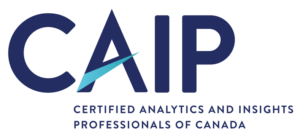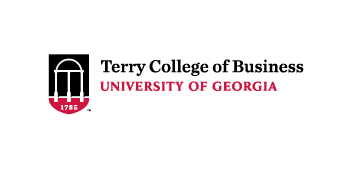Stay connected
Be the first to know about new programs, upcoming events, or other exciting opportunities happening at the University of Georgia by joining our mailing list.
About this course
Learning objectives
After completing this course you should be able to:
- Explain how sampling works.
- Discuss the sampling design process: definition of the target population, best modes to reach that population, determination of the sampling frame, selection of sampling technique(s), determination of sample size, and execution of the sampling process.
- Explain the differences between probability and non-probability samples, the benefits, drawbacks, and when each might be used.
- Discuss the major types of probability sampling (simple random, systematic, stratified, and cluster), their benefits, drawbacks, and when each might be used.
- Discuss the major types of non-probability sampling (convenience, quota, and snowball), their benefits, drawbacks, and when each might be used.
- Explain the differences between landline and mobile phone sampling.
- Describe sampling techniques and sources specific to Internet data collection, including mobile research.
- Discuss the survey assignment process and understand the potential bias implications of routing, targeting, prescreening, and prior survey exposure.
- Describe the concept of consistent sampling both in terms of a consistent sample frame and how sample is drawn and quotas are set against that frame.
- Discuss how a single sample frame is not necessarily connected to a single mode and that having multiple points of contact for the same person can increase response rates.
- Describe how the screener section of the survey, as well as dropouts, data quality, and technical issues, will ultimately impact the “sample” that completes the survey.
- Describe the challenges in obtaining representative samples and how representative samples can be improved at the selection stage or through weighting.
- Describe when to use margin of error calculations and confidence levels when reporting results.
- Explain how to use the principles of sampling to make judgments about representativeness and bias in secondary data.
- Describe the challenges researchers face when developing samples for global studies.
- Identify the ethical considerations in sampling as applied to both end users (“clients”) and participants.
This course is not intended to provide legal guidance or advice. While the codes of industry associations offer some guidance, researchers also may find it necessary to consult with local legal counsel in the jurisdiction(s) where the research is to be conducted in order to ensure full compliance
Who should attend?
- Entry-level researchers looking for a solid introduction to sampling for market research.
- Mid-level staff seeking to expand their skillsets.
- Experienced researchers looking to catch up with the latest developments.
- Corporations seeking professional development options for their internal training portfolio.
- Supplier-side researchers seeking courses for new-employee onboarding
- Researchers who plan or execute research projects.
- Analysts needing to understand how a sampling method can create bias.
- Client-side researchers responsible for writing RFPs and evaluating proposals.
- Any researcher or analyst who needs to better understand key sampling concepts so that they can speak knowledgeably with their clients and sample providers.
- People just entering the research field who want to understand the full process of market research from beginning to end.
Continuing Education Information
Students successfully completing graded components earn a Digital Badge (Opens in a new window) and 0.9 University of Georgia Continuing Education Unit (Opens in a new window) (CEU) from The University of Georgia.
As a graduate of the course you will be recognized by industry associations, employers, peer groups and other professionals as understanding how to translate your research findings into reports and presentations that grab your audience’s attention, address the business decision your client needs to make, and offer sound and useful recommendations. This recognition will help you advance in your company and the industry.

CAIP Canada (Opens in a new window) also recommends the course for candidates looking to fill in the gaps or gain a refresher in specific areas.
Requirements & policies
Schedule
Enroll at any time and complete the course’s required graded components within 30 days.
Fees & funding information
$359 – Standard Fee
$329 – Association Discount (Members* of: Insights Association; ESOMAR; Canadian Research Insights Council, The Research Society, Intellus Worldwide, QRCA, AMAI, WAPOR-Latinoamérica, MRII Board of Directors, UGA MMR Advisory Board.)
$50 – One-Month Extension (only one extension is granted per participant)
*Membership will be verified.
Prepayment is required to be registered. The prices listed are per person (US Funds).
Cancellation or refund
We will issue a refund, minus a $100 processing fee, if you have not accessed the online course. All cancellation and refund requests must be sent via email to gc-student@uga.edu no later than seven (7) days after your course access information is issued.

Technology
Take advantage of the different features (PDF files, URLs/links to external websites, animated exercises, audio and video clips) you should use a browser such as Chrome (Opens in a new window), Firefox (Opens in a new window), Microsoft Edge (Opens in a new window), or Safari (Opens in a new window) and a fast internet connection provide the best experience. The online platform supports many popular web browser versions. To find out if your computer’s current software configuration is compatible, see System & Software Requirements (Opens in a new window).
Prerequisites
There are no prerequisites for enrolling in Research Design and Data Identification. However, prospective enrollees might also consider our course, Introduction to Market Research and the Research Process.
Explore more foundational, topic-specific courses in our Principles Express series (Opens in a new window).
Textbooks
Malhotra, Naresh K., Essentials of Marketing Research: A Hands-On Orientation, Pearson Education: Upper Saddle River, NJ. ISBN-13: 978-0-13-340182-0 (digital subscription edition)
Included in the online course are suggested reading assignments from the above textbook. These readings are not required content and will not be part of the testing for the course. The textbook suggestions are simply intended to add additional depth to your understanding of the topic.
People & organizations
Author
Keith Phillips is Dynata’s Director of Research Science, leading primary research, client assistance, training, and sampling initiatives. Previously, he was a Senior Research Manager at OTX Research (2004-2010). He is a frequent presenter at industry events and holds a B.S. in Business Administration (Marketing) from the University of Connecticut. Visit Keith’s LinkedIn profile.

Supporting associations
Founding Organizations
Proud Corporate Sponsors of MRII
 (Opens in a new window)
(Opens in a new window) (Opens in a new window)
(Opens in a new window) (Opens in a new window)
(Opens in a new window) (Opens in a new window)
(Opens in a new window) (Opens in a new window)
(Opens in a new window) (Opens in a new window)
(Opens in a new window) (Opens in a new window)
(Opens in a new window) (Opens in a new window)
(Opens in a new window) (Opens in a new window)
(Opens in a new window) (Opens in a new window)
(Opens in a new window) (Opens in a new window)
(Opens in a new window) (Opens in a new window)
(Opens in a new window) (Opens in a new window)
(Opens in a new window) (Opens in a new window)
(Opens in a new window) (Opens in a new window)
(Opens in a new window) (Opens in a new window)
(Opens in a new window) (Opens in a new window)
(Opens in a new window) (Opens in a new window)
(Opens in a new window) (Opens in a new window)
(Opens in a new window)Supporting Organizations
Prices, course details, dates, and times are subject to change.
Contact us + FAQs
FAQs
View the most frequent questions asked by our learners
Financial and Military Assistance
Find out which programs are eligible for assistance
Accommodations
View our accommodation policy
















